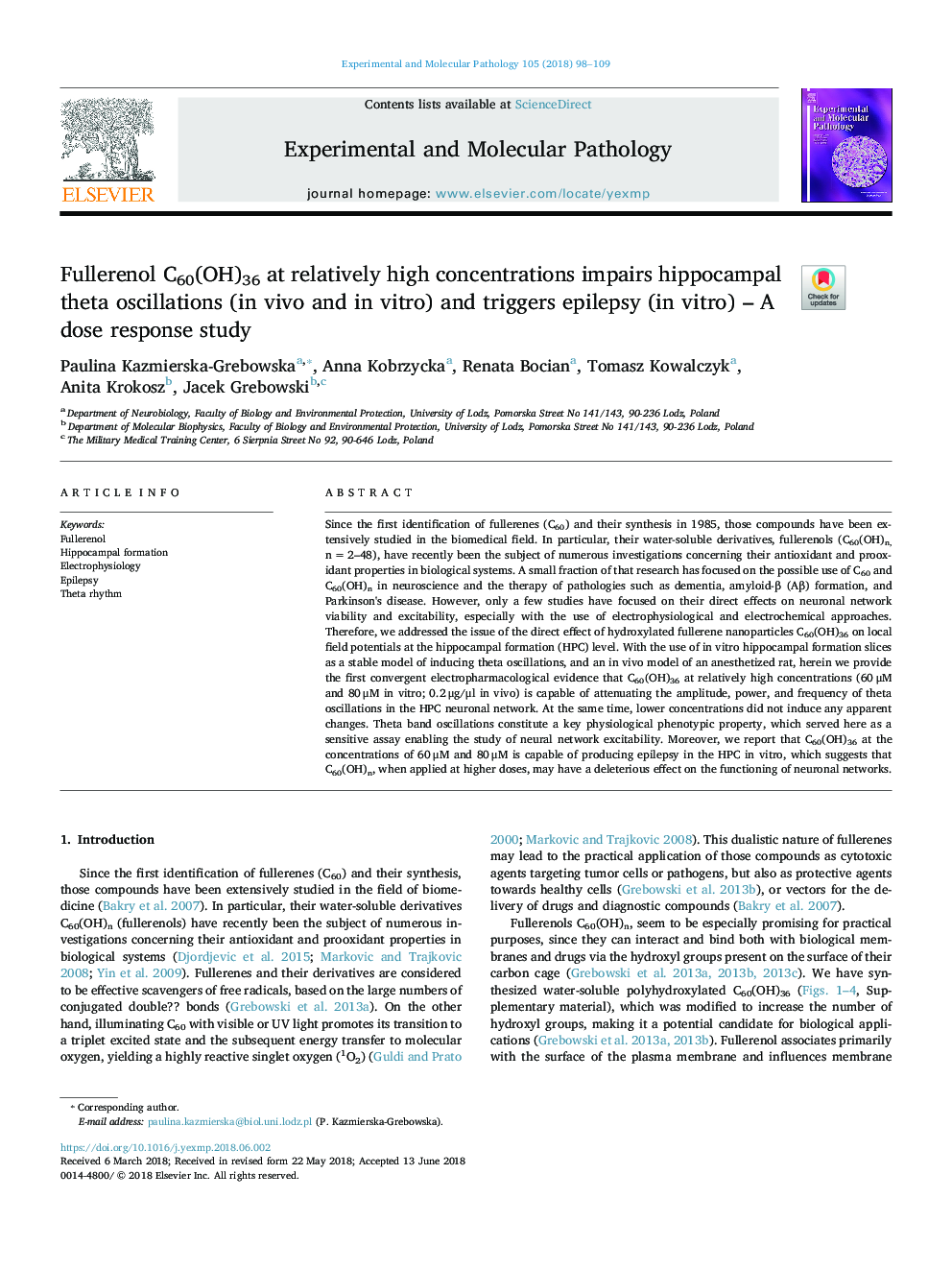| Article ID | Journal | Published Year | Pages | File Type |
|---|---|---|---|---|
| 8624099 | Experimental and Molecular Pathology | 2018 | 12 Pages |
Abstract
Since the first identification of fullerenes (C60) and their synthesis in 1985, those compounds have been extensively studied in the biomedical field. In particular, their water-soluble derivatives, fullerenols (C60(OH)n, nâ¯=â¯2-48), have recently been the subject of numerous investigations concerning their antioxidant and prooxidant properties in biological systems. A small fraction of that research has focused on the possible use of C60 and C60(OH)n in neuroscience and the therapy of pathologies such as dementia, amyloid-β (Aβ) formation, and Parkinson's disease. However, only a few studies have focused on their direct effects on neuronal network viability and excitability, especially with the use of electrophysiological and electrochemical approaches. Therefore, we addressed the issue of the direct effect of hydroxylated fullerene nanoparticles C60(OH)36 on local field potentials at the hippocampal formation (HPC) level. With the use of in vitro hippocampal formation slices as a stable model of inducing theta oscillations, and an in vivo model of an anesthetized rat, herein we provide the first convergent electropharmacological evidence that C60(OH)36 at relatively high concentrations (60â¯Î¼M and 80â¯Î¼M in vitro; 0.2â¯Î¼g/μl in vivo) is capable of attenuating the amplitude, power, and frequency of theta oscillations in the HPC neuronal network. At the same time, lower concentrations did not induce any apparent changes. Theta band oscillations constitute a key physiological phenotypic property, which served here as a sensitive assay enabling the study of neural network excitability. Moreover, we report that C60(OH)36 at the concentrations of 60â¯Î¼M and 80â¯Î¼M is capable of producing epilepsy in the HPC in vitro, which suggests that C60(OH)n, when applied at higher doses, may have a deleterious effect on the functioning of neuronal networks.
Related Topics
Life Sciences
Biochemistry, Genetics and Molecular Biology
Clinical Biochemistry
Authors
Paulina Kazmierska-Grebowska, Anna Kobrzycka, Renata Bocian, Tomasz Kowalczyk, Anita Krokosz, Jacek Grebowski,
